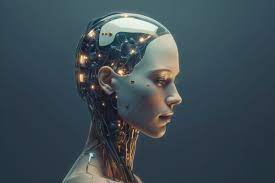
Unlocking the Potential: Exploring the Power of AI’s Impact
AI (Artificial Intelligence) is a rapidly growing technology that is changing the way we live and work. AI is used in many different industries, from healthcare to finance, to help automate tasks and make decisions faster and more accurately. AI can be used to identify patterns in data, predict customer behaviour, automate mundane tasks, and much more.
AI is made up of algorithms that are designed to learn from past data and experiences. This means that AI can be used to make decisions based on the data it has collected. For example, AI can be used in healthcare to diagnose diseases or recommend treatments based on a patient’s medical history. In finance, AI can be used to identify fraud or predict market trends.
AI has become increasingly popular in recent years due to its ability to automate processes and increase efficiency. Companies are using AI for tasks such as customer service automation, marketing automation, automated financial analysis, and more. By automating mundane tasks with AI, companies can save time and money while increasing their productivity.
AI also has the potential to revolutionize many industries by providing insights that would otherwise be impossible for humans to achieve. For example, AI can be used in agriculture to monitor crops and provide farmers with real-time information about their crops’ health. In manufacturing, AI can help identify defects in products before they reach customers.
As exciting as these possibilities may sound, there are still some ethical concerns surrounding the use of AI. One of the main concerns is around privacy; as AI collects data about people’s behaviour and preferences it raises questions about how this data will be used and who will have access to it. There are also concerns around transparency; as algorithms become more complex it becomes harder for humans to understand how they work and what decisions they are making.
Despite these concerns, it’s clear that Artificial Intelligence is here to stay and will continue to revolutionize many industries in the years ahead. From healthcare to finance, AI is already making a huge impact on our lives and will continue to do so for years to come!
Answering the Most Common Questions about Artificial Intelligence (AI)
- What are the 9 types of AI?
- What are AI’s in business?
- Where is AI used?
- What are the 7 types of AI?
- What do you mean by AI’s?
- Who is AI stands for?
- What are 4 types of AI?
What are the 9 types of AI?
Reactive Machines
Limited Memory
Theory of Mind
Self-Awareness
Natural Language Processing (NLP)
Computer Vision
Machine Learning
Deep Learning
9. Robotics
What are AI’s in business?
AI’s in business are Artificial Intelligence applications that can automate processes, analyze data, and provide insights to help businesses make better decisions. Examples of AI’s in business include natural language processing (NLP) for customer service automation, robotic process automation (RPA) for streamlining operations, predictive analytics for forecasting trends, machine learning and deep learning for automating decision making, computer vision for automated image recognition and analysis, and chatbots for providing customer service.
Where is AI used?
AI is used in a variety of industries, including healthcare, finance, manufacturing, retail, transportation, and more. AI is used to automate processes and tasks, create predictive models for forecasting and decision-making, analyze large amounts of data to uncover patterns and insights, optimize customer experiences and marketing campaigns, improve cybersecurity measures and much more.
What are the 7 types of AI?
Reactive Machines
Limited Memory
Theory of Mind
Self-awareness
Natural Language Processing (NLP)
Computer Vision
7. Robotics
What do you mean by AI’s?
AI’s (Artificial Intelligence) are computer systems that are designed to perform tasks that would typically require human intelligence, such as visual perception, speech recognition, decision-making, and language translation. AI systems can be used to automate processes, analyze large data sets, and make decisions in complex environments.
Who is AI stands for?
AI stands for Artificial Intelligence.
What are 4 types of AI?
Reactive Machines
Limited Memory
Theory of Mind
4. Self-Awareness
